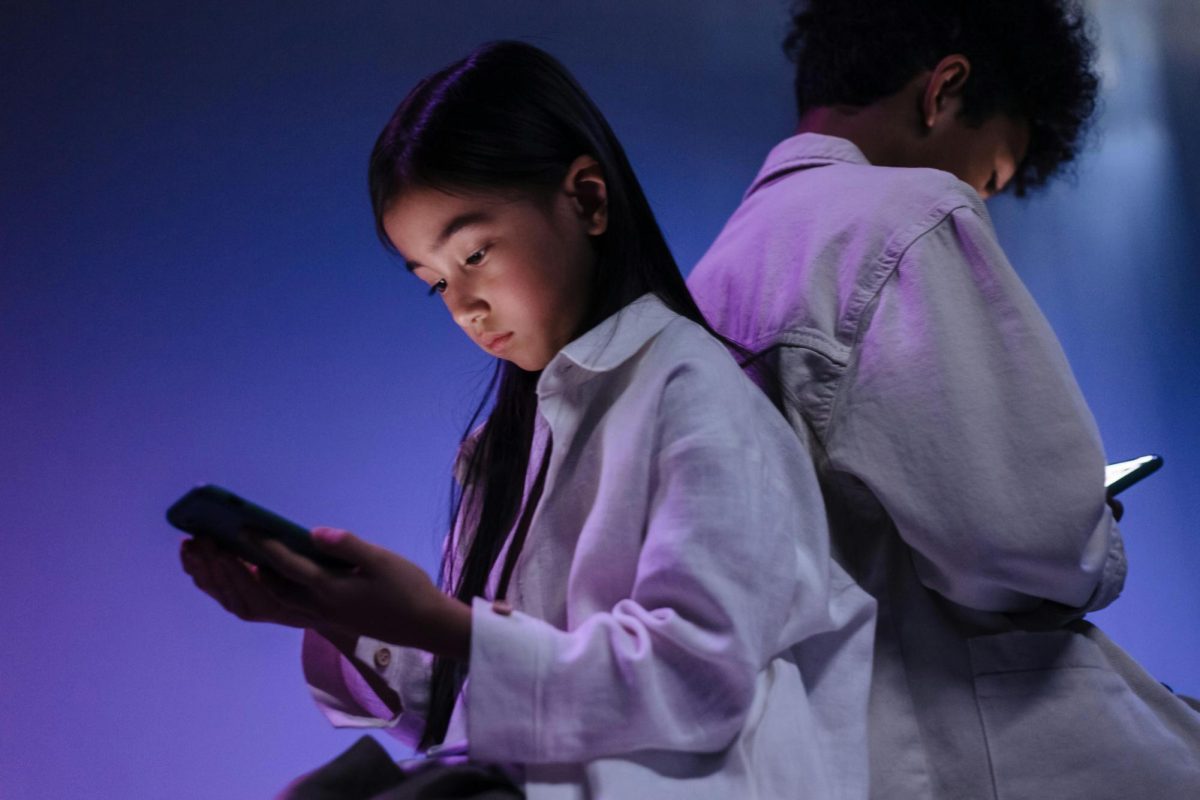As of the year 2024, 95% of teenagers ranging thirteen to seventeen years old have access to a cell phone, whether it’s their own or a parent’s. Cell phone access is great for many reasons. Teens may use them to express creativity, complete schoolwork, or socialize with friends. However, by using cell phones, children can also contact strangers. Oftentimes, the dangers of cell phones are overlooked by adults. With the help of cell phone privacy, teens can have conversations with strangers, be cyberbullied, and could even be the bully. For these reasons, and many more, teenage children should not have privacy when it comes to their cell phones because they may be bullied, share inappropriate content, or be a bully.
First of all, teenage children shouldn’t have privacy on their cell phones because they have a risk of being cyberbullied. Cyberbullying is quickly becoming an increasing problem with teens all over the world. This is often because children are far less monitored through the internet than they are in real life. According to the article “Should Parents Decide What Their Kids Do Online? These States Think So” by CNN writer Samantha Murphy Kelley, which speaks about newly forming laws meant to protect children on social media, discusses that teenagers today are experiencing a “mental health crisis” (Kelley 1) and one of the biggest causes is cyberbullying. In fact, the issue is becoming so severe that numerous states are implementing laws that will monitor what children do on social media in hopes of preventing this bullying. This is incredibly important because bullying can lead to depression, anxiety, or even suicidal thoughts. However, laws are hard to pass, and because this technology is so recent, most states have difficulties controlling it. One way to prevent this is for parents to simply check their teens’ phones to make sure they are not victims of cyberbullying.
But, that’s not the only risk or reason why teenagers shouldn’t have cell phone privacy. Via the internet, children may also engage in inappropriate or dangerous activities. This can include talking to strangers, sharing personal information, making unauthorized purchases, or taking and sending inappropriate images. According to the article “Secret Smartphone Spy Device Taps Teen Privacy Debate” by Rick Wallace, teaches about a new US platform spreading worldwide that allows parents to view every little thing their children do on their phones. “Sexting is a very common trend among young teenagers” (Wallace 1). This is a very dangerous situation for teenagers to be in. Not only is it inappropriate, but it could also lead to illegal actions. If anyone, no matter the age, is found to have or be distributing nude photographs of a minor, they will be charged for having and distributing child pornography. After that, teens may be registered sex offenders anywhere from fifteen years to the rest of their lives. Fortunately, this predicament can be easily solved if parents of teenagers check their photos and messages each night.
Now, of course, cell phones aren’t all bad and there are some reasons people believe teenagers’ cell phone usage should not be monitored. Many people believe that parents should not go through their children’s phones because it’s an invasion of privacy and may restrict children’s creativity. Going through your teenager’s phone may stop them from fully and truthfully expressing themselves. However, it is already known that teens are easily targeted by cyberbullying via social media… but what if your child was the bully? As mentioned earlier, many teens find it easier to hurt others when it’s from behind a screen. They often forget the very real consequences of cyberbullying. In the article, “Woodrow Principal Asks Parents to Monitor Teens’ Cell Phone Use” by Jessica Farrish, Farrish explains a new trend of high school principals asking parents to monitor their children’s cell phone use because of recent increases of teens doing harmful things via social media. “Student fights over social media, online bullying… play a derogatory role on students’ education and can also impact their future or their safety, Cantley said” (Farrish 1). If a teen bullies another from online, it can quickly become considered harassment. This falls under the umbrella of domestic violence and can be punished with up to five years jail time and a fifteen thousand dollar fine. Not only this, but there can also be punishments in school. This can be anything from lunch detention to expulsion from school. Any of these consequences will have negative effects on teenagers’ lives for many years to come.
As you can see from reasons such as teens being bullied, sharing inappropriate content with strangers, and being a bully, teenage children should not have privacy when it comes to their cell phones. If they do, they may get bullied, engage in inappropriate and dangerous activities, or even be the bully. All of these actions will have horrible consequences on children, whether it be legally or emotionally. But, we must still remember that these are only children. The prefrontal cortex in their brains is not fully developed yet. This means that they won’t be the best at decision-making and doing what’s best for them. But in adults, the prefrontal cortex is fully formed and developed. This is why parents of teenage children need to monitor their children’s cell phone usage. Even if they can’t express as much creativity, know it is for their safety.







